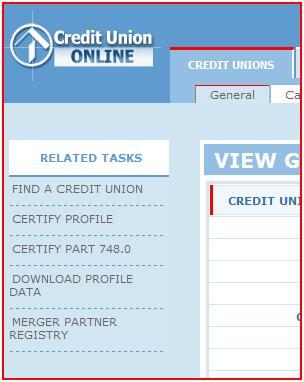Board Action Bulletin
Corporate system reform rule finalized
The NCUA Board today issued a final rule that establishes a new, comprehensive framework for corporate credit union safety and soundness. The rule will strengthen the corporate credit union system and reduce the systemic risk associated with the corporate system.
Major revisions include:
- Capital Standards – bolster corporate capital, require minimum retained earnings levels, and establish prompt corrective action requirements;
- Investments – prohibit private label residential mortgage backed securities and subordinated securities, and establish various concentration limits to ensure diverse investment pools and risk mitigation;
- Asset/Liability Management – prevent cash flow mismatches and preserve liquidity;
- Corporate CUSOs – limit to activities approved by NCUA, and provide NCUA greater access; and
- Governance – establish board qualifications and increase transparency.
The rule also includes conforming amendments to Part 702, Prompt Corrective Action (for natural person credit unions); Part 703, Investments and Deposit Activities (for federal credit unions); Part 747, Administrative Actions, Adjudicative Hearings, Rules of Practice and Procedure, and Investigations; and Part 709, Involuntary Liquidation of Federal Credit Unions and Adjudication of Creditor Claims Involving Federally Insured Credit Unions.
To ensure credit unions understand the new rule and legacy asset resolution, NCUA is addressing stakeholder questions. Chairman Matz will host a Town Hall webinar next Monday afternoon, and she announced today that 11 additional Regional Town Hall meetings will be held in October at numerous locations across the country.
View all new corporate credit union regulations and policies and register for the webinar online at the new NCUA webpage “Corporate System Resolution” listed below, and next Monday look for registration information for the Regional Town Hall meetings.
Corporate credit union legacy asset resolution outlined
NCUA’s deputy executive director reported that over the past two years some corporate credit unions (essentially “banker’s banks”) have suffered severe losses from a decline in the value of mortgage backed securities they held. These losses threatened to destabilize the entire credit union system and interrupt payment transactions for 90 million consumers. NCUA has been successful in stabilizing the situation, and is now prepared to resolve the individual problem institutions and reform the regulatory framework for corporate credit unions.
The NCUA resolution plan is based on a comprehensive analysis of the entire corporate system. Resolution involves NCUA assuming control of a total of five corporate credit unions, two of which have been under conservatorship since 2009. NCUA will then isolate and fund a total of almost $50 billion in troubled (legacy) assets held by these institutions. NCUA has secured the services of Barclays Capital, New York, New York, to facilitate funding these legacy assets in the markets at the least long-term cost consistent with sound public policy.
Isolating legacy assets prevents the need to sell them at severely distressed prices. Securitizing and giving them a U.S. government guarantee and then selling them to investors on the open market will provide financial resolution. The proceeds raised by their sale will fund the legacy assets. This key component of the resolution will help ensure NCUA resolves the situation at the lowest possible cost, consistent with sound public policy.
NCUA is committed to ensuring no disruption in corporate payment system processing. NCUA will use bridge corporates to facilitate an orderly transition of the operations of these five institutions.
Overall the credit union system remains strong. Credit unions, not taxpayers, will fund all costs associated with the corporate credit union system solution. NCUA consulted the Treasury, Federal Reserve, and other federal financial regulators in developing these plans and will continue to work closely with these agencies to ensure the orderly resolution of troubled corporates, the effective implementation of the steps outlined, and the continued smooth operation of the credit union system.
Board delegates corporate credit union CUSO authority
The NCUA Board delegated authority to the Director, Office of Corporate Credit Unions (OCCU) to review, and approve or disapprove, applications from corporate CUSOs under the new paragraph 704.11(e)(1)(iii) of the NCUA R&Rs to engage in certain categories of activities.
The activities subject to this delegation are those authorized for federal credit union CUSOs under §712.5. Any application that goes beyond the scope of activities listed in §712.5 will be decided by the NCUA Board. The delegation also authorizes the OCCU Director to post approved corporate CUSO activities on NCUA’s website.
Corporate credit union chartering guidelines issued
The NCUA Board issued proposed guidelines setting forth NCUA requirements and the process for granting new corporate FCU charters.
NCUA is issuing these guidelines as Interpretive Ruling and Policy Statement (IRPS) “Corporate Federal Credit Union Chartering Guidelines” with a 30-day comment period. Prior to finalization, NCUA will also use the proposed guidelines to process any corporate FCU charter applications received during the comment period.
The NCUA tweets all open Board meetings live. Follow @TheNCUA (opens new window) on Twitter, and access Board Action Memorandums and NCUA rule changes at www.ncua.gov. The NCUA also live streams, archives and posts videos of open Board meetings online.


